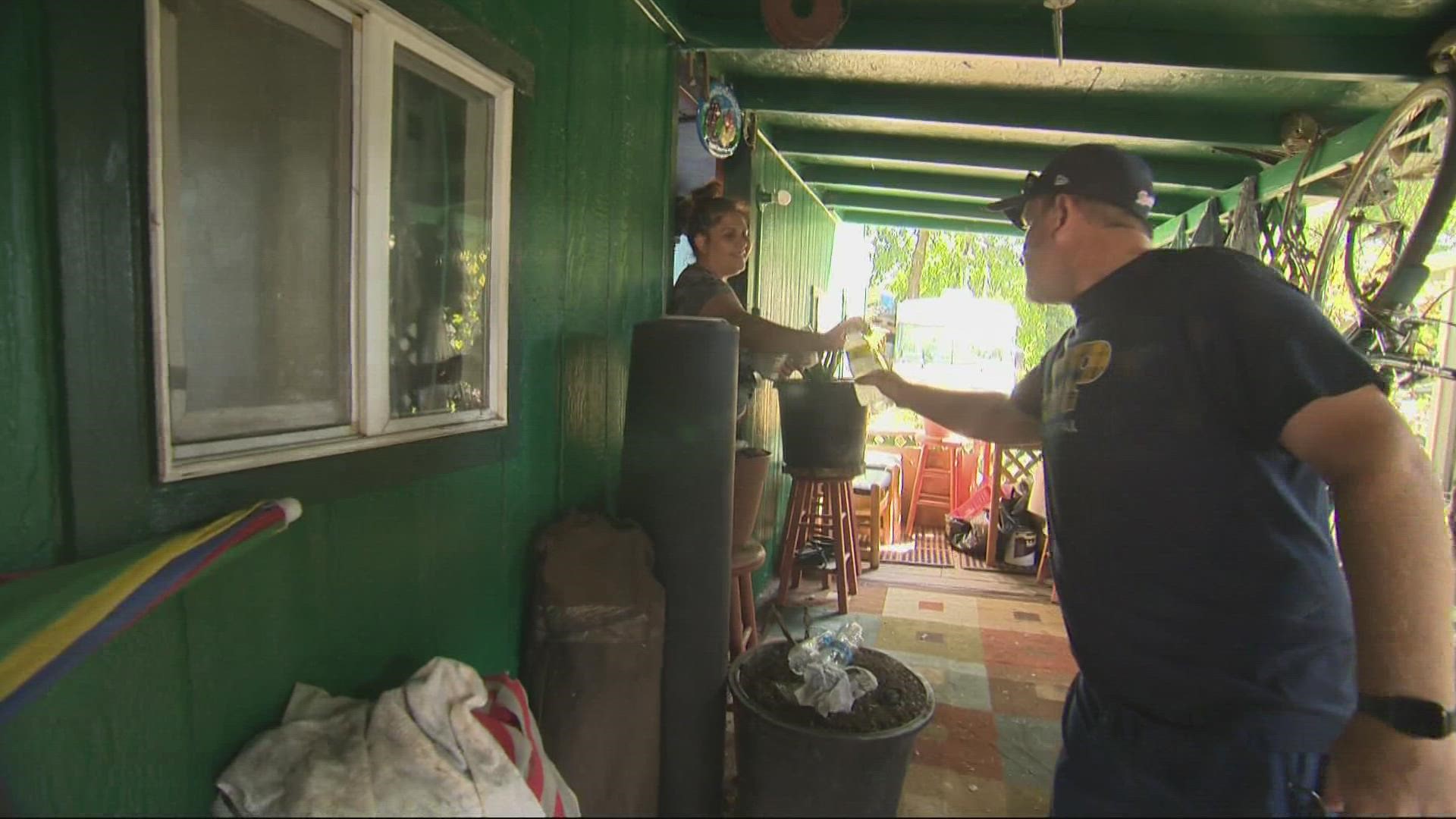PORTLAND, Ore. — After 69 people died in Multnomah County from the June 2021 heat wave, county leaders said it would be critical to "enhance" door-to-door checks and other outreach efforts to help at-risk people during the next heat crisis.
Now that the county, city of Portland and state have declared emergencies due to the heat wave, how is the Portland area handling these in-person checks?
"Events of last summer were heartbreaking and I think it just made a change of mind and change of heart, it motivates people so much to be proactive in this incident," said Jonna Papaefthimiou, chief resilience officer for the city of Portland.
Papefthimiou said the city and county spent more time preparing for intense heat this summer, and housing providers are more actively checking on residents.
She said Portland is leaving much of the in-person checks to nonprofit groups, volunteer organizations and housing providers, while municipal resources have focused on expanding cooling areas.
Additionally, she said the city is sending out tens of thousands of automated to calls to people in high-risk "heat islands" — places that get hotter than the rest of the city — to encourage people to check on their neighbors and loved ones.
"There’s never going to be enough firefighters or even enough trained volunteers to go and knock on every single door, but everybody has somebody who cares about them and that has to be the solution," she said.
Caleb Coder and volunteers from nonprofit organization Cultivate Initiatives loaded up coolers with ice and water bottles Thursday.
A group of four, including Coder and two local nursing students, drove to an East Portland mobile home park on Thursday; rolling wagons of supplies around and offering water, electrolytes, food, and supplies to anyone who might need them
They're part of the network of people the city and county rely on for door-knocking in the heat, reaching people who might not have air conditioning or access to other resources and emergency notifications.
"It's hot, we're just seeing what people need," Coder said.
The group described what they had to offer in English and Spanish, asking residents if they knew of anyone who could use a cool-down.
"So many of the deaths we saw last year are people that lived alone, didn’t have people to check on them, and so what we have to do is create a cultural shift where people recognize heat is a life-threatening emergency," Papefthimiou said.
Multnomah County and Portland leaders said they shifted their messaging this year away from alerts telling people to stay cool and safe, instead emphasizing that people should check on family members and neighbors near them.
Papefthimiou said rather than trying to reach people who are already difficult to contact in a heat emergency, encouraging community outreach and check-ins are most effective.
Most people who died from the 2021 heat wave lived alone and were over 60 years old.
In addition, the city's effort to send out thousands of robocalls through the emergency alert system to people in targeted areas is an attempted widespread strategy.
"In this case, it’s the best way for us to reach hundreds of thousands of people in one day and remind them to check on their neighbors, to check on people that they care about," Papefthimiou said.

